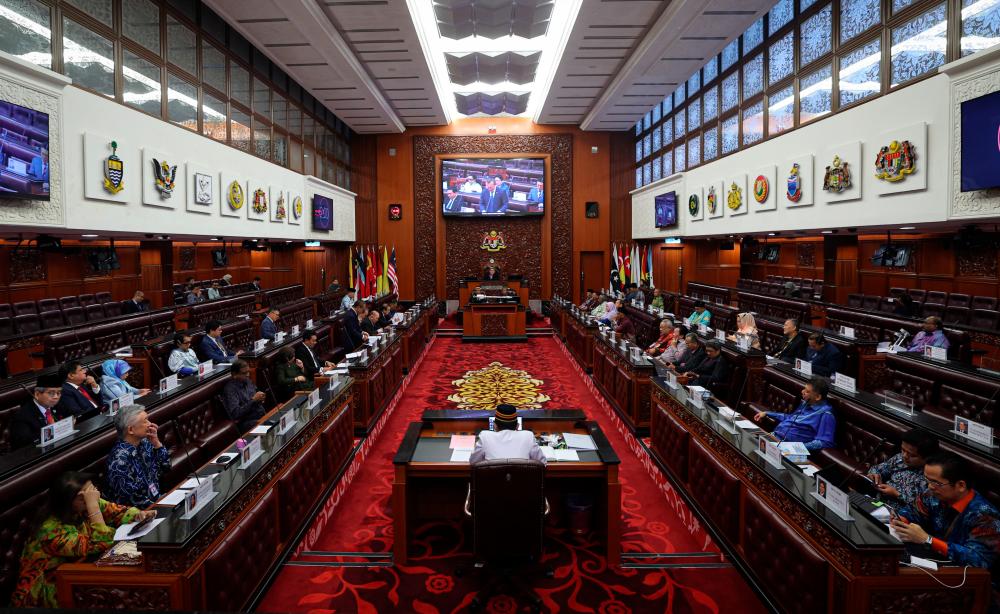KUALA LUMPUR: The Cabinet reshuffle, which saw the appointment of five ministers and five deputy ministers, including four new faces, and the return of five former ministers, is seen as a wise move by Prime Minister Datuk Seri Anwar Ibrahim to ensure his Madani Government achieves its aspirations.
According to analysts, the reshuffle also could be seen as part of Anwar’s strategies on how he is going to handle the country’s economy effectively and efficiently in the future.
A senior fellow at Nusantara Academy for Strategic Research Prof Dr Azmi Hassan believed that the restructuring involving a few portfolios was not something that just popped up overnight, but must have been in the Prime Minister’s mind for quite some time.
“A lot of people are questioning the decision, but I guess there are reasons behind it.
“For example, the decision to split the Communications and Digital Ministry into two ministries was made due to Malaysia’s vision to venture seriously into the digital economy, and I guess Gobind Singh Deo is an appropriate person to helm the Ministry of Digital,” he said when featured in Bernama TV’s The Nation programme that discussed the cabinet reshuffle perspective today.
Earlier today, Anwar announced a major Cabinet reshuffle, the first under his Unity Government as it enters its second year of administration.
The announcement saw the number of ministers in the Cabinet expanded from 28 to 31, while the number of deputy ministers was increased from 27 to 29, bringing the total number of Unity Government administrative members to 60.
Two ministries were restructured involving the Ministry of Natural Resources, Environment, and Climate Change, which is now split into the Ministry of Energy Transition and Public Utilities, and the Ministry of Natural Resources and Sustainability; and the Communications and Digital Ministry, which is also split into the Ministry of Communications and the Ministry of Digital.
Meanwhile, a political analyst from Universiti Sains Malaysia (USM) Dr Azmil Mohd Tayeb said he believes that the Cabinet reshuffle was made to streamline the government management to become more efficient and focused.
Besides, he said he also viewed the decision to reinstate Datuk Seri Dr Dzulkefly Ahmad as the Minister of Health as appropriate, considering his previous experience in that role during the Pakatan Harapan (PH) government.
“We know that during the PH administration, he was a popular Health Minister, and as such, it is highly suitable for him to hold that position again. Additionally, I also believe this is to restore the quota of Parti Amanah Negara (Amanah) within the Cabinet,” he said.
At the same time, Azmil, who is the Coordinator of the Political Science Division at USM Centre for Social Sciences Studies, did not refute the possibility that the appointment of two new ministers from DAP today is an effort to appease the party, which may have felt sidelined due to a lack of a role in the previous Cabinet line up.
A lecturer at Universiti Teknologi Malaysia (UTM) Razak Faculty of Technology and Informatics, Assoc Prof Dr Mazlan Ali, on the other hand, believes that the Cabinet reshuffle could not have been made at a more appropriate time.
“After a year of the Unity Government’s journey, now is the appropriate time for a reshuffle as the government needs to consider several aspects, such as filling the vacancy in the Cabinet due to death, and since the country’s economic sustainability has improved, the Cabinet needs to be slightly expanded,” he said.
Despite the expansion in the number of appointed ministers and deputy ministers, the total is still much smaller compared to previous administrations.
Furthermore, with the entry of new faces with vast experience into the Cabinet this time around, Mazlan believes that it can add value to the Prime Minister’s administration and the Unity Government. -Bernama









